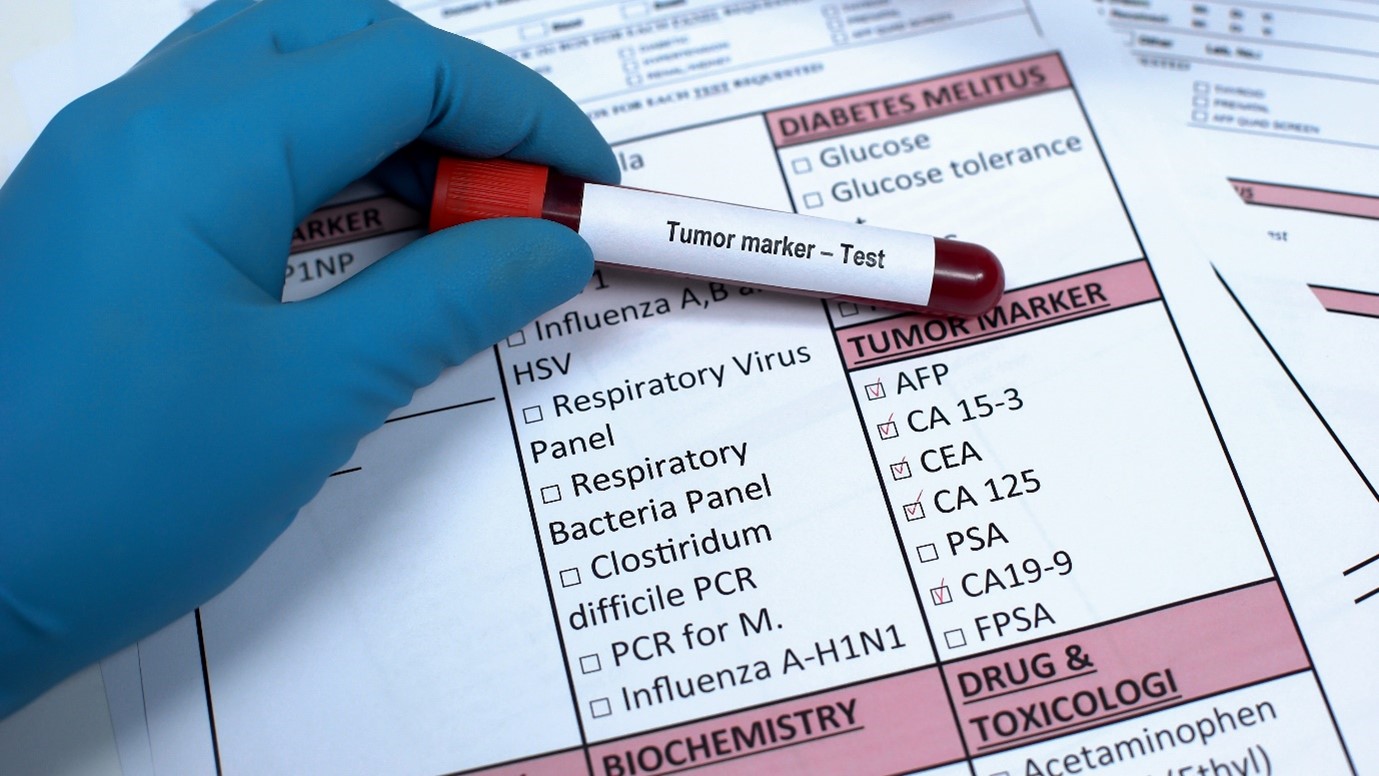What Are Tumor Marker Tests?
Tumor marker tests are diagnostic procedures that identify substances known as tumor markers, which are either created by cancer cells or by normal cells in response to cancer.
These markers can be proteins or other molecules and are commonly found in body fluids like blood or urine, or in cells obtained from a biopsy.
By measuring the levels of these markers, doctors can evaluate various aspects of cancer, such as its growth, spread, and how well treatment is working.
How Are Tumor Marker Tests Used?
Tumor marker tests are mainly used to track the progression of known cancers, helping doctors evaluate how the disease is responding to treatment.
They can also assist in determining if cancer has spread, guide the choice of treatment, and check for recurrence after treatment.
In certain cases, tumor marker tests may be used to screen high-risk individuals or helps in diagnosing specific cancers, though a biopsy is typically necessary for an exact diagnosis.
Common Tumor Markers and Their Uses
Various types of cancers are linked to different tumor markers. For example:
- CA 125: Ovarian cancer – Used to monitor treatment effectiveness and check for recurrence.
- PSA (Prostate-Specific Antigen): Prostate cancer – Helps with screening, diagnosis, and monitoring treatment.
- CEA (Carcinoembryonic Antigen) (Colorectal Cancer): Monitors treatment and detects recurrence.
- AFP (Alpha-fetoprotein) (Liver Cancer): Helps in diagnosing liver cancer and assessing treatment progress.
- CA 15-3 & CA 27-29 (Breast Cancer): Used to monitor advanced stages of breast cancer.
What Happens During a Tumor Marker Test?
Most tumour marker tests are blood tests, though urine samples or biopsies may also be used.
A healthcare professional collects a blood sample from a vein, which typically takes less than five minutes for a blood test.
Depending on the tumor’s location, a biopsy involves collecting a small tissue sample from the tumor, either through a needle or a small incision. In some cases, urine tests are used to detect markers in body fluids.
Are There Any Risks or Preparations Needed?
Blood and urine tests have minimal risk, with only slight discomfort or bruising at the injection site. Biopsies may involve mild discomfort or bruising, but risks are generally low. No special preparation is usually required for blood or urine tests, though fasting may be necessary for certain biopsy procedures. Always consult with your h about any preparations before your test.
Take Charge of Your Health at Reeshitha Diagnostics
If you or a loved one requires a tumour marker test, Reeshitha Diagnostics offers reliable and accurate testing services. Our experienced professionals are here to help you understand your test results and guide you through the next steps in your healthcare journey. Please schedule an appointment with us today and take a proactive approach to your health!



